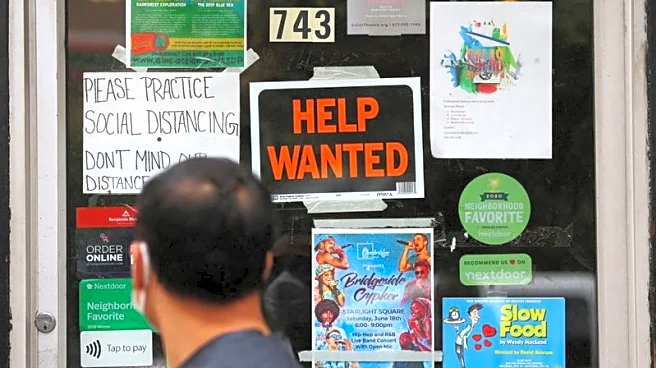What's Happening?
President Trump has announced a delay in the implementation of 100% tariffs on branded and patented pharmaceutical products, initially set to begin on October 1. According to a White House official, this date will mark the start of preparations for the tariffs rather than their immediate enforcement. The delay comes amidst ongoing negotiations and exemptions for companies expanding their domestic manufacturing capabilities. Trump has been considering these tariffs since February, with potential rates reaching up to 250%. Recent trade agreements with the European Union and Japan have established lower tariffs on generics, at 15%. Major pharmaceutical companies like Pfizer, AbbVie, and Eli Lilly are investing heavily in U.S. operations to mitigate the impact of these tariffs.
Why It's Important?
The delay in implementing pharma tariffs is significant for the pharmaceutical industry and U.S. drug pricing. Companies that fail to comply with the Most Favored Nation pricing policy may still face tariffs, prompting many to invest in domestic manufacturing. This shift could lead to increased drug prices and affect consumer access to medications. The tariffs aim to encourage domestic production, potentially boosting U.S. manufacturing jobs and infrastructure. However, the uncertainty surrounding tariff implementation may impact international trade relations and pharmaceutical market dynamics.
What's Next?
Pharmaceutical companies are likely to continue expanding their U.S. manufacturing capabilities to avoid tariffs. The government will begin preparing for tariff enforcement, with potential adjustments based on industry compliance with pricing policies. Stakeholders, including industry leaders and policymakers, will monitor the situation closely, assessing the impact on drug pricing and availability. Further negotiations with international markets may occur to establish favorable trade terms and mitigate tariff effects.
Beyond the Headlines
The delay in tariffs highlights the complex interplay between trade policies and domestic economic strategies. Ethical considerations arise regarding drug pricing and access, as tariffs could disproportionately affect consumers reliant on imported medications. Long-term shifts in pharmaceutical manufacturing may influence global supply chains and innovation in drug development.












